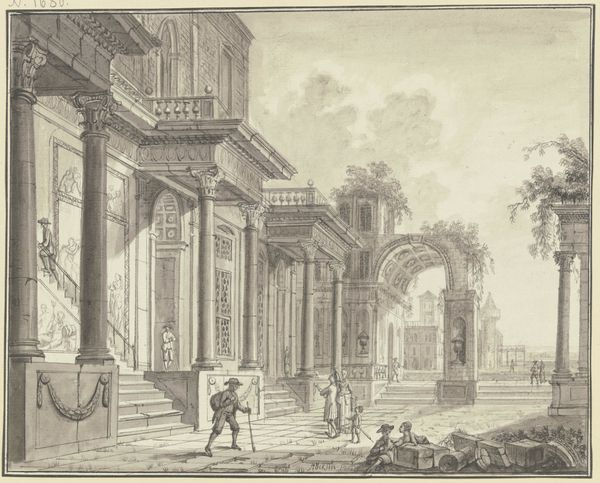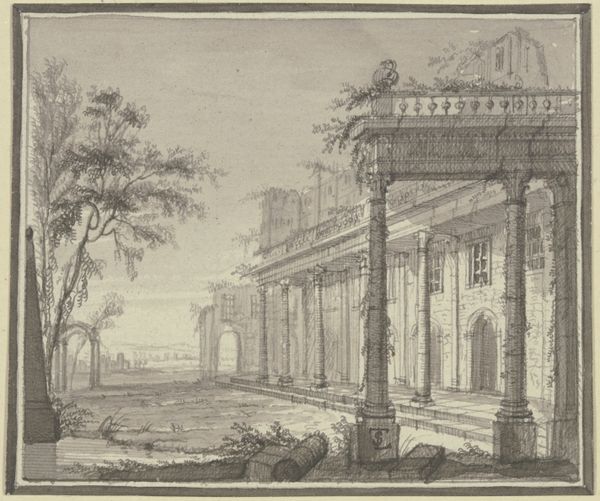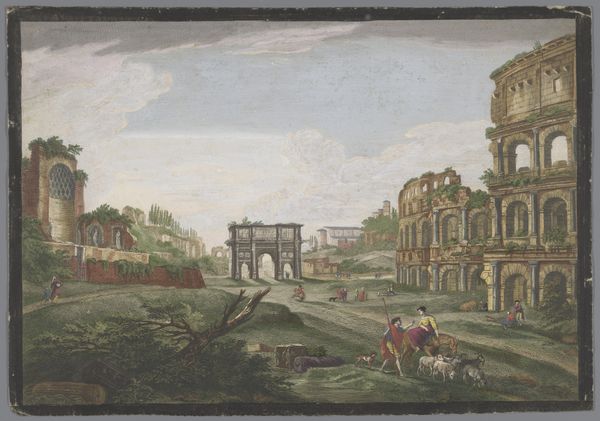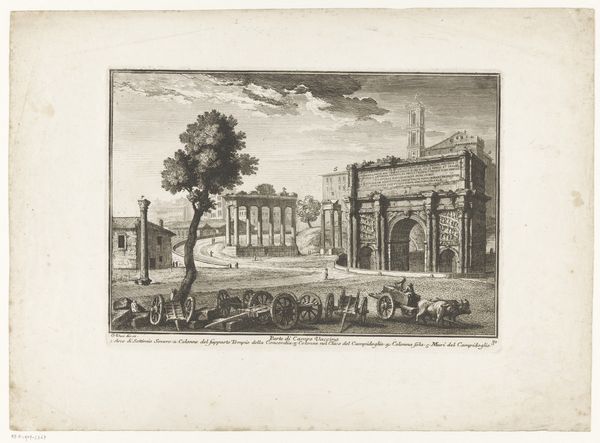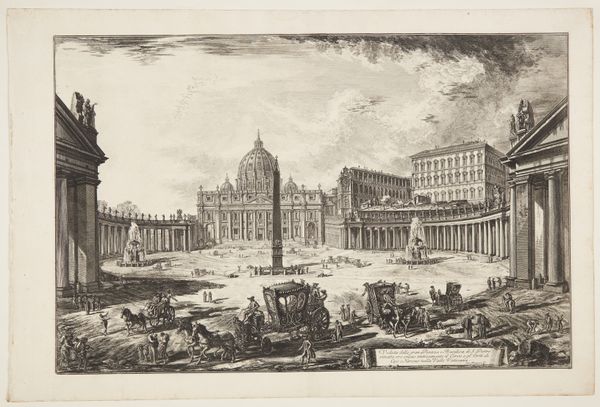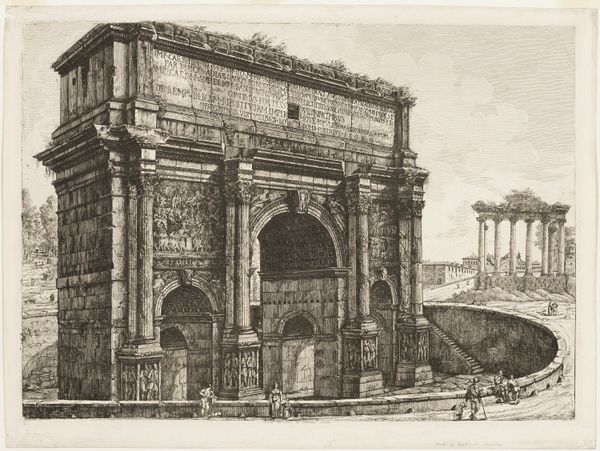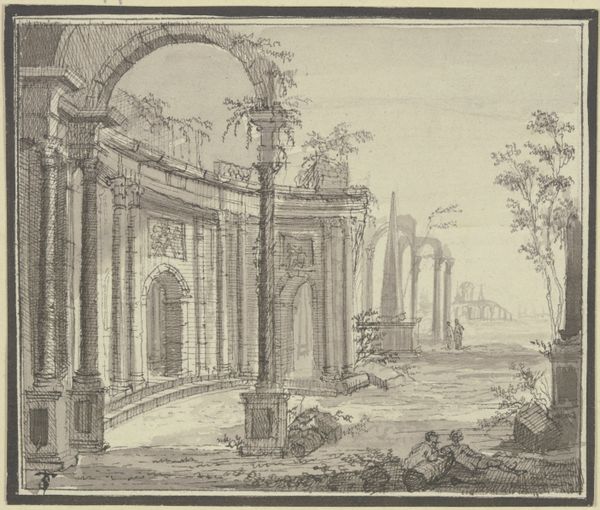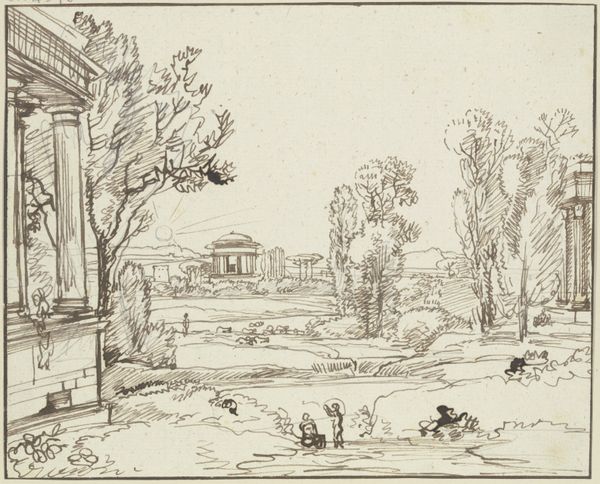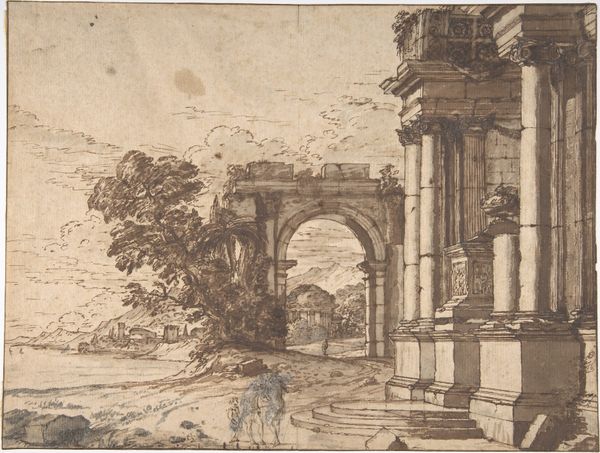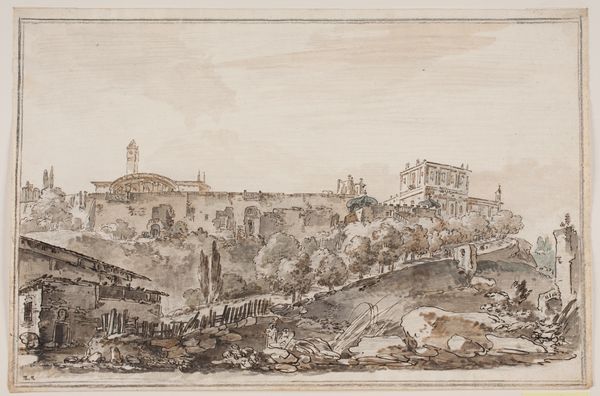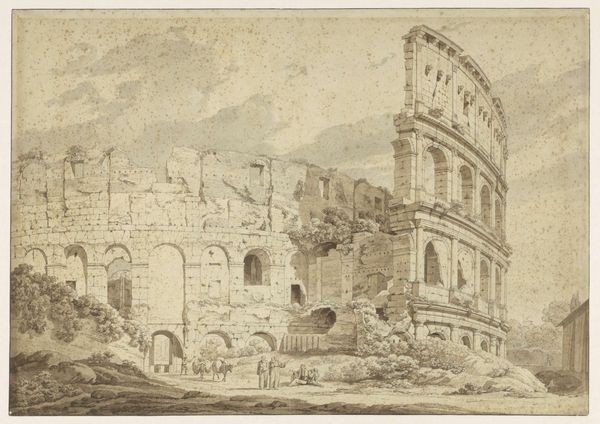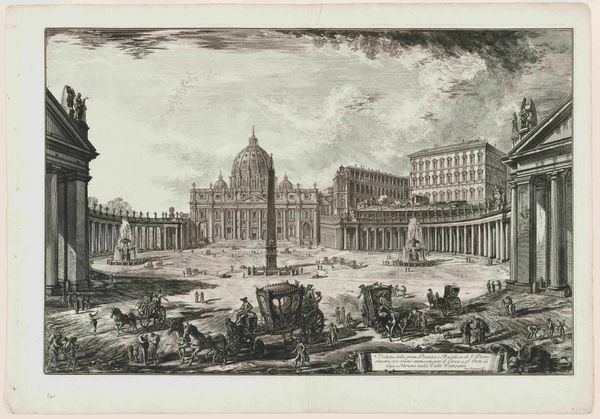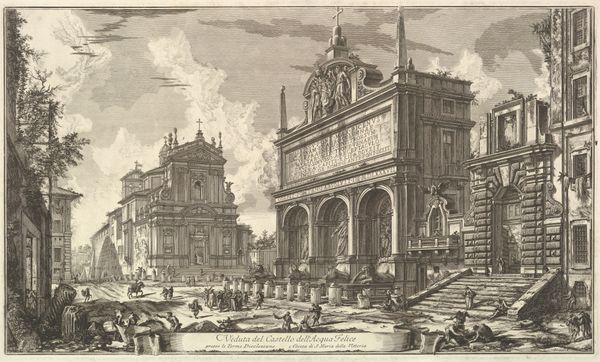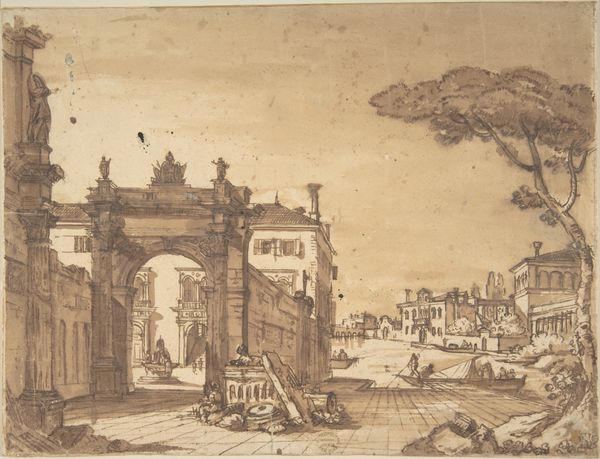
View of Roman Colosseum and Arch of Titus, with Couple in Foreground n.d.
0:00
0:00
drawing, print, paper, ink, graphite, pen
#
drawing
#
ink painting
# print
#
pencil sketch
#
landscape
#
classical-realism
#
paper
#
ink
#
graphite
#
pen
#
cityscape
#
genre-painting
#
academic-art
Dimensions: 325 × 460 mm
Copyright: Public Domain
Editor: So, here we have a drawing titled "View of Roman Colosseum and Arch of Titus, with Couple in Foreground," its date is unknown, made by Giuseppe Fini, using pen, ink, graphite on paper. It strikes me as a bit melancholic, the ruins lending a sense of past glory. What catches your eye about it? Curator: The iconography of ruins is potent, isn’t it? Think of what the Colosseum and the Arch of Titus represent – Roman power, imperial triumph, now weathered and overgrown. But within this decay, what symbols of new life and continuity do you observe? Editor: Well, there’s the couple in the foreground, almost oblivious to the ruins. And the trees, very much alive and verdant. Curator: Precisely. The artist places figures of love and growth amidst symbols of faded empire. Do you think this contrast merely highlights decay, or suggests something more? Consider, too, the classical style itself. What memory does it evoke? Editor: It does feel like more than just highlighting decay. Maybe a kind of rebirth, like nature reclaiming what was lost. The classical style brings back images of an ideal, which contrasts with the ruined reality. It seems a reflection on the cyclical nature of power. Curator: That's insightful. Think about how frequently artists through history have used Roman ruins as a backdrop, a constant visual motif. The ruins are never *just* ruins; they are stand-ins for themes of memory, transformation, and the ongoing negotiation between the past and the present. The Arch of Titus itself commemorated the victory over Jerusalem, which brought both triumph and destruction, embedded in one symbol. Editor: I never thought about ruins being used so consistently throughout history. The layers of symbolism really do add depth. Thank you! Curator: It's a powerful image, isn’t it? It really underlines how symbols continue to accumulate meanings through time.
Comments
No comments
Be the first to comment and join the conversation on the ultimate creative platform.
